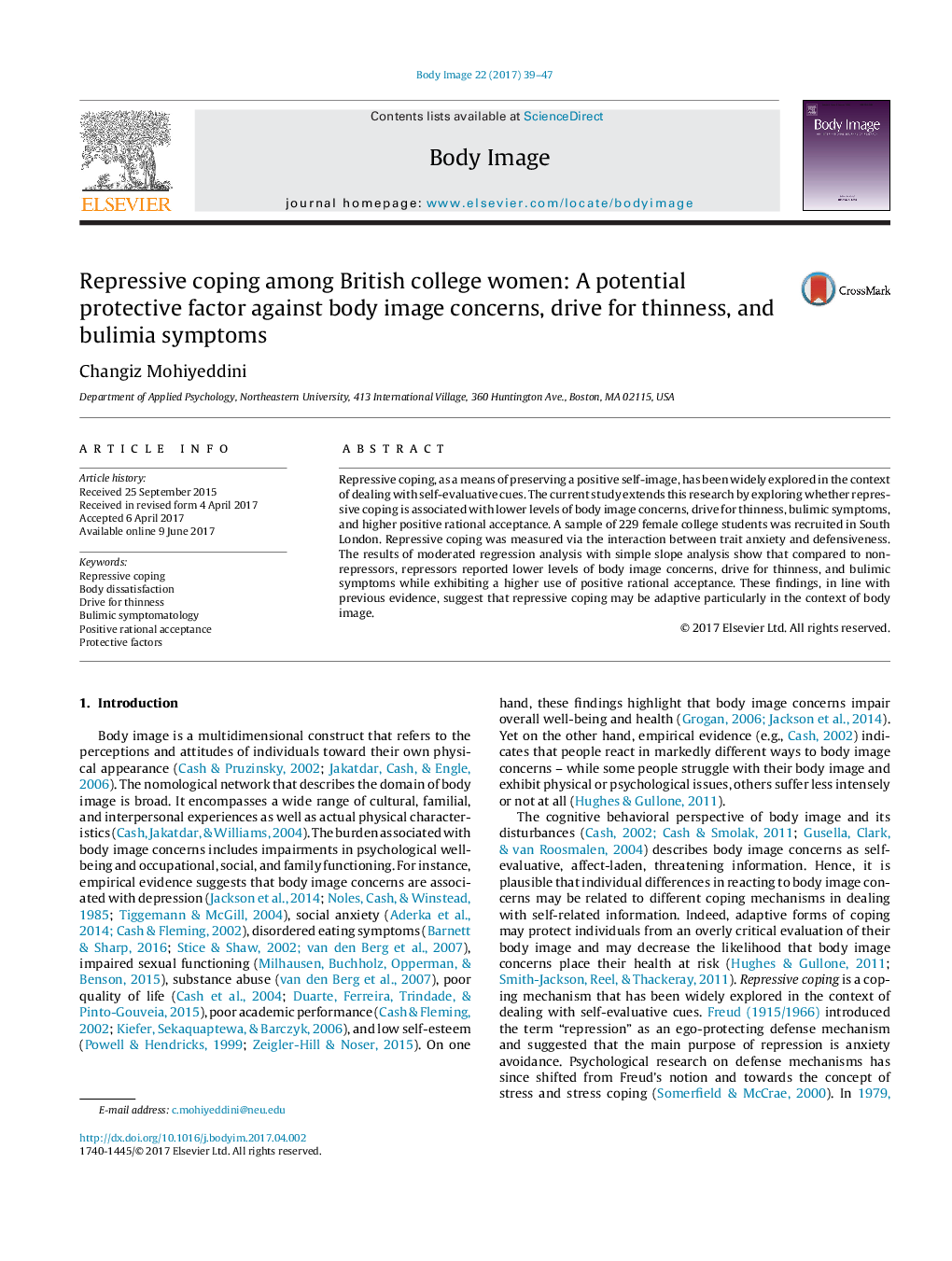| Article ID | Journal | Published Year | Pages | File Type |
|---|---|---|---|---|
| 5038373 | Body Image | 2017 | 9 Pages |
â¢Female British repressors report fewer concerns about their body image.â¢Female British repressors report lower levels of bulimic symptoms.â¢Female British repressors report lower levels of drive for thinness.â¢Repressive coping may have an adaptive function in the context of body image concerns among British college women.
Repressive coping, as a means of preserving a positive self-image, has been widely explored in the context of dealing with self-evaluative cues. The current study extends this research by exploring whether repressive coping is associated with lower levels of body image concerns, drive for thinness, bulimic symptoms, and higher positive rational acceptance. A sample of 229 female college students was recruited in South London. Repressive coping was measured via the interaction between trait anxiety and defensiveness. The results of moderated regression analysis with simple slope analysis show that compared to non-repressors, repressors reported lower levels of body image concerns, drive for thinness, and bulimic symptoms while exhibiting a higher use of positive rational acceptance. These findings, in line with previous evidence, suggest that repressive coping may be adaptive particularly in the context of body image.
